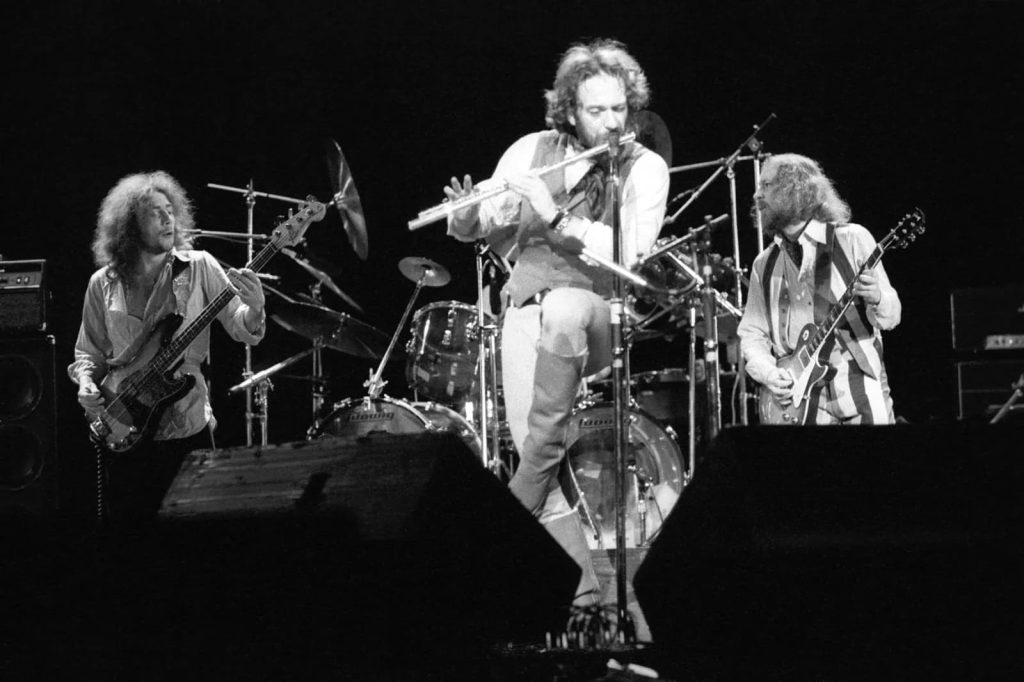
A Scathing, Yet Compassionate, Portrait of Societal Outcasts
Jethro Tull’s “Aqualung” is a landmark rock composition, a sprawling and thought-provoking exploration of social alienation and spiritual questioning, a track that challenged the conventions of rock music and established the band as pioneers of progressive rock.
In 1971, Jethro Tull, led by the enigmatic Ian Anderson, released their fourth studio album, also titled “Aqualung,” which featured the eponymous track. This song, a complex and controversial piece, transcended the boundaries of conventional rock, becoming a defining moment in the band’s career. While not released as a standalone single in the traditional sense, “Aqualung” became an FM radio staple and a centerpiece of the album, which reached number seven on the Billboard 200. Its impact was profound, sparking debates about religion, morality, and the role of the artist in society. It wasn’t just a song; it was a cultural phenomenon, a work of art that challenged listeners to confront uncomfortable truths. This track, a masterpiece of musical and lyrical complexity, continues to resonate with its raw honesty and unflinching social commentary.
The story of “Aqualung” is inextricably linked to Ian Anderson’s own observations of society and his desire to challenge conventional thinking. The song’s genesis was rooted in his growing disillusionment with organized religion and his empathy for those marginalized by society. The character of Aqualung, a homeless man living on the fringes of society, became a symbol of this alienation, a figure that Anderson portrayed with both compassion and critical observation. The song’s creation was a departure from the band’s earlier blues-rock sound, incorporating elements of folk, rock, and progressive music to create a sonic tapestry that was both intricate and powerful. The recording sessions were a testament to the band’s musical virtuosity, with Anderson’s flute playing, Martin Barre’s guitar work, and the rhythm section’s dynamic interplay creating a sound that was both innovative and timeless.
The meaning of “Aqualung” is a multifaceted exploration of social hypocrisy, spiritual questioning, and the human condition. The lyrics, though often cryptic and ambiguous, paint a vivid portrait of a society that is quick to judge and condemn those who don’t conform. The character of Aqualung becomes a symbol of this societal alienation, a figure that is both pitied and feared. The song challenges listeners to confront their own prejudices and to question the assumptions that underpin their beliefs. It’s a song about the loneliness and isolation that can result from societal exclusion, and the search for meaning in a world that often feels indifferent. The song also explores the tension between organized religion and genuine spirituality, questioning the role of institutions in shaping individual beliefs. For those who remember the early 1970s, a time of social and political upheaval, “Aqualung” resonated deeply, capturing the anxieties and uncertainties of a generation grappling with questions of faith, morality, and identity. It was a song that challenged the status quo, that dared to be different, and that sparked conversations that continue to this day.
Ian Anderson’s vocal performance is a masterclass in dramatic delivery, his voice filled with a sense of urgency and conviction. The song’s arrangement, with its dynamic shifts between acoustic and electric sections, its intricate flute melodies, and its powerful guitar riffs, creates a sonic landscape that is both captivating and unsettling. The song’s enduring appeal lies in its timeless quality, its ability to evoke a sense of introspection and critical thinking that transcends generations. It’s a testament to the power of rock music to challenge conventions, to provoke thought, and to leave a lasting legacy.
For those who witnessed the rise of progressive rock, “Aqualung” evokes memories of a time when music was evolving, when artists were pushing the boundaries of creativity, and when the album format was becoming a vehicle for complex and ambitious storytelling. It’s a reminder of Jethro Tull’s unique talent, their ability to blend musical virtuosity with social commentary. It’s a testament to the power of music to spark dialogue, to challenge assumptions, and to leave a lasting impact on the cultural landscape. To listen to “Aqualung” now is to be transported back to a time of artistic exploration, of social questioning, and of the enduring magic of Jethro Tull’s music.